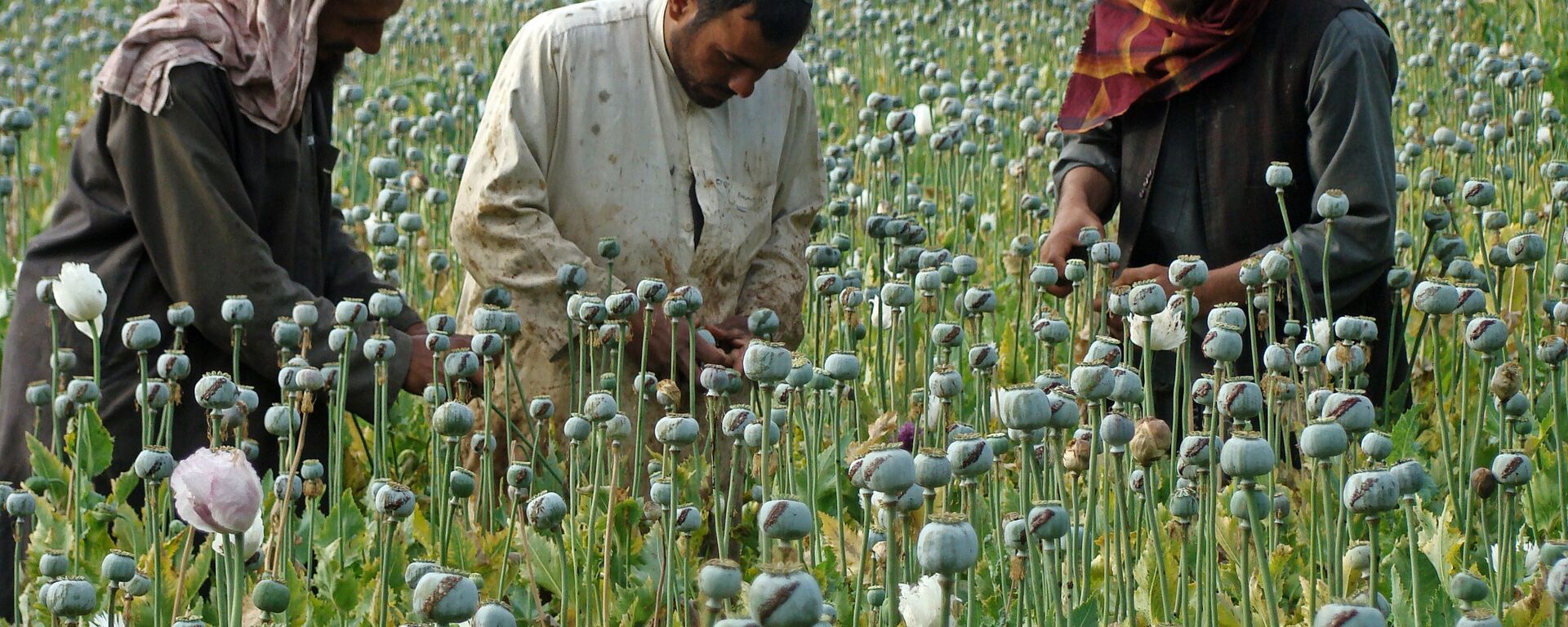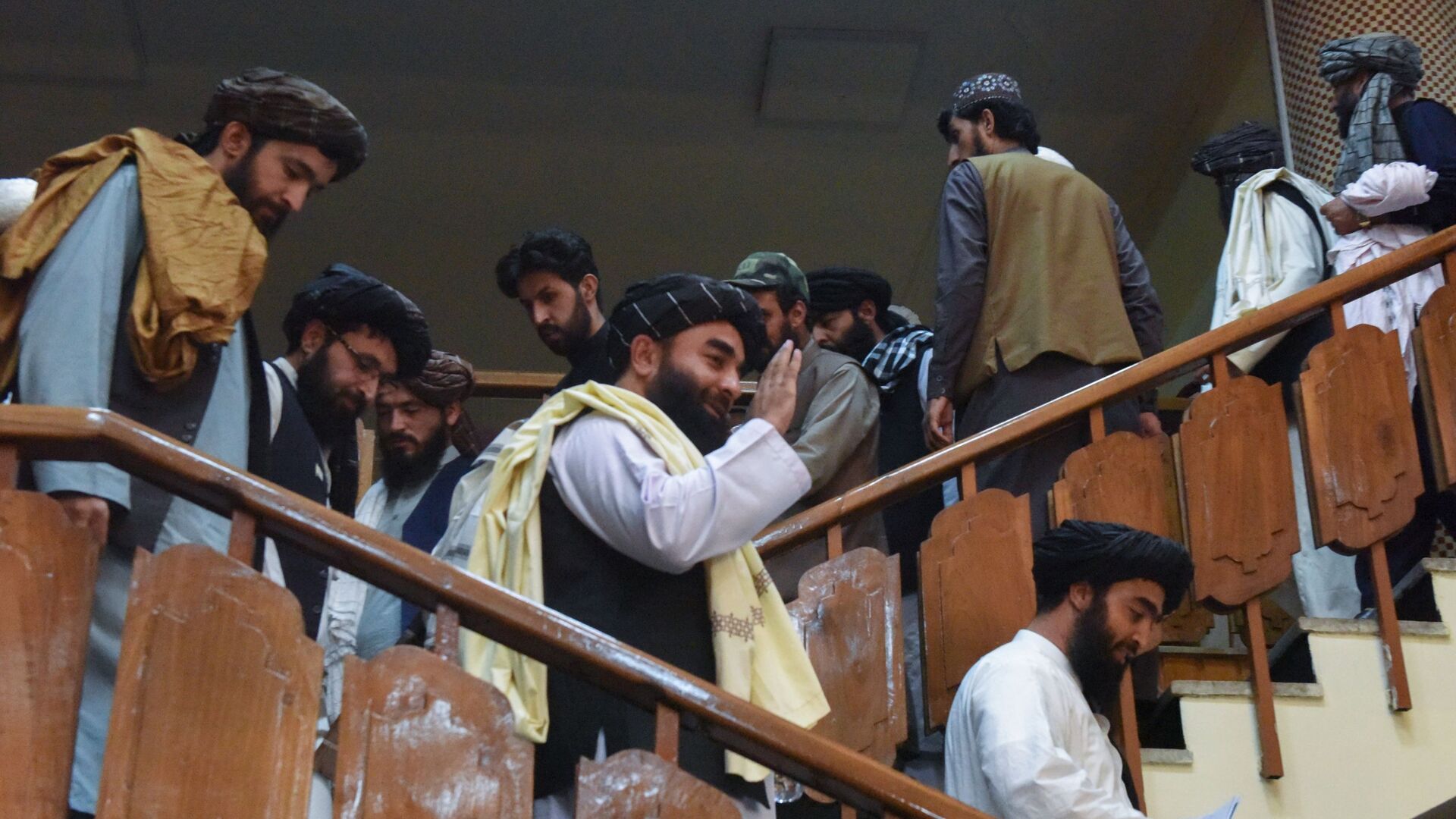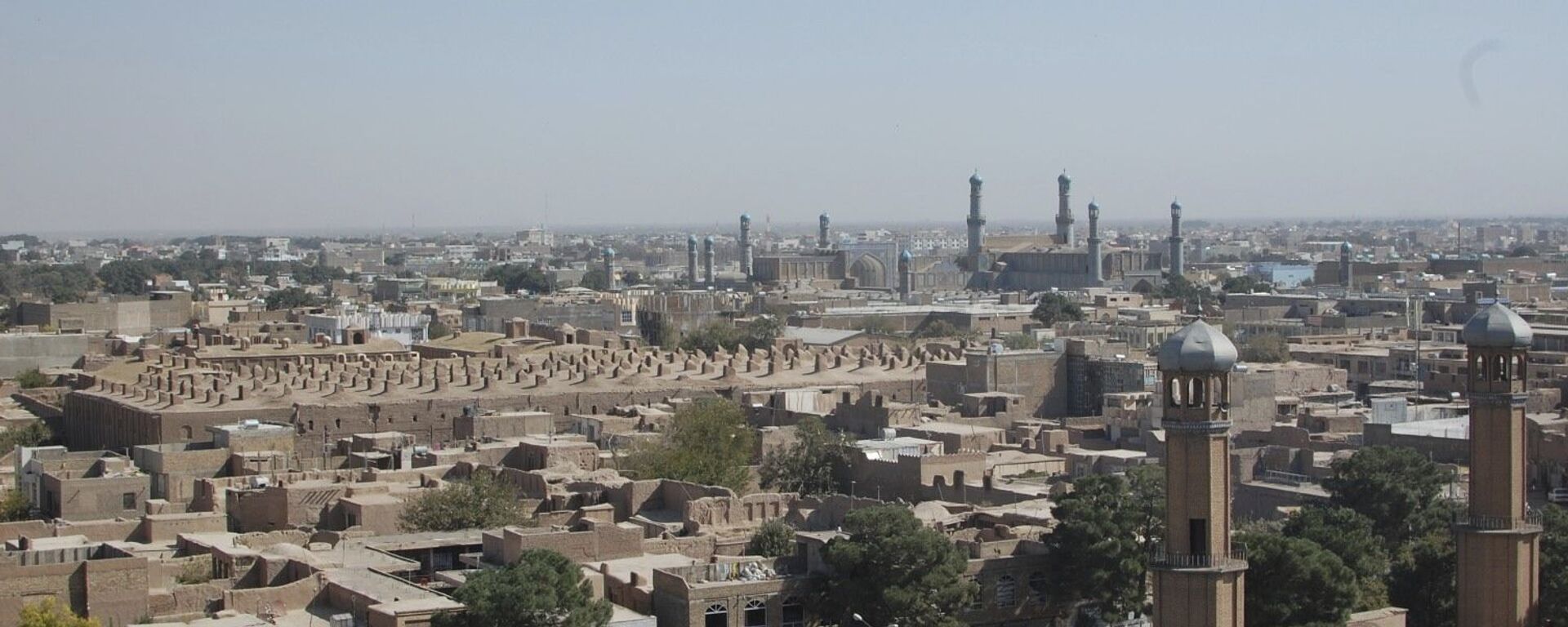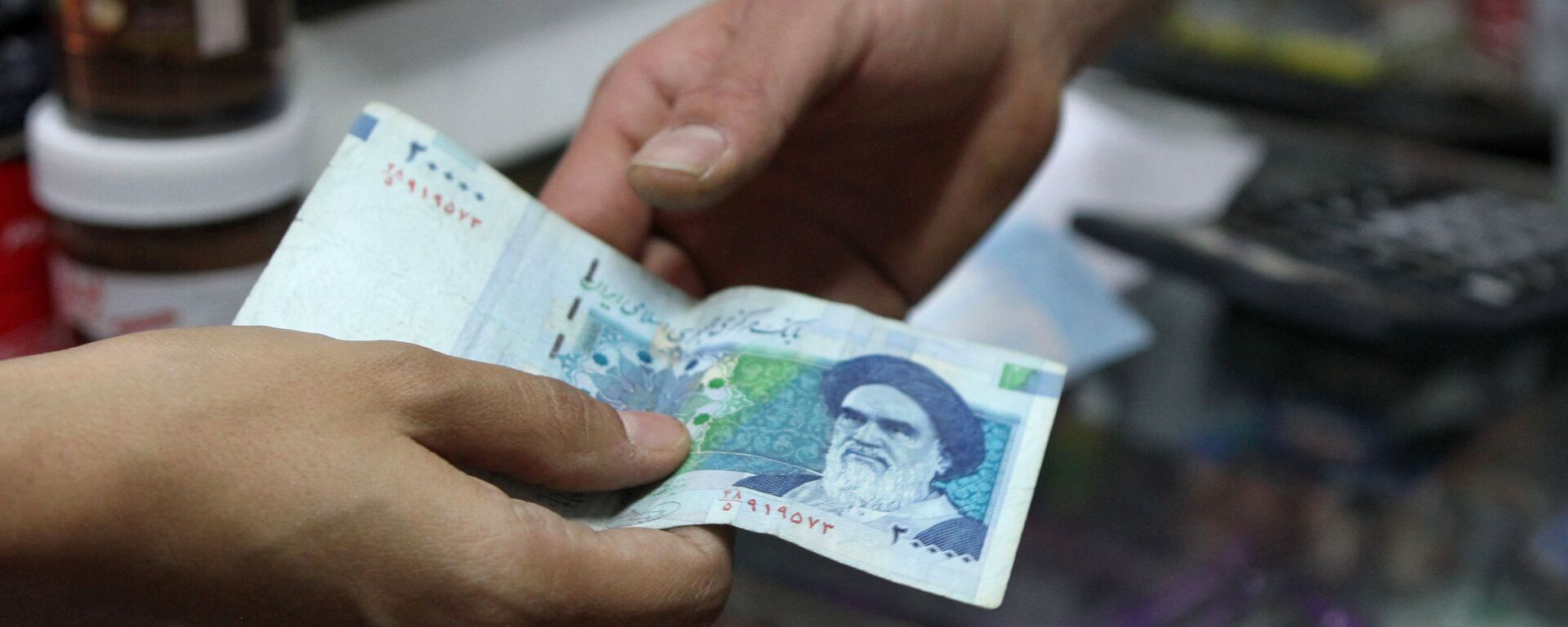https://sputnikglobe.com/20240528/why-time-is-ripe-to-delist-taliban-as-banned-entity-1118667255.html
Why Time is Ripe to Delist Taliban as Banned Entity
Why Time is Ripe to Delist Taliban as Banned Entity
Sputnik International
Moscow has signaled it is considering delisting the Taliban* as a terrorist organization, thus paving the way for the recognition of the new Afghan government and deepening economic, political and security ties with the country.
2024-05-28T16:27+0000
2024-05-28T16:27+0000
2024-05-29T05:28+0000
sergey lavrov
haibatullah akhundzada
afghanistan
moscow
al-qaeda
taliban
central asia
isis-k
isis
russia
https://cdn1.img.sputnikglobe.com/img/07e5/08/11/1083641539_0:18:3064:1742_1920x0_80_0_0_2a447728a9639b45b34125620efb630c.jpg
The Russian Foreign Ministry and the Ministry of Justice sent a note to President Vladimir Putin recommending that the Afghan Taliban* be excluded from the list of organizations banned in the country.The Taliban was designated a terrorist entity by the decision of the Russian Supreme Court on February 14, 2003.The movement maintains "real power" in Afghanistan, hence the initiative to delist it as a banned organization reflects the reality on the ground, Russian Foreign Minister Sergey Lavrov stated earlier this week."[Russia] has an embassy in Afghanistan. There are also representatives of the Taliban at the Afghan Embassy in Moscow. Therefore, in order to remove obstacles in the way of cooperation with Afghanistan, including in the economic and political spheres, excluding the Taliban from the terrorist list seems logical."Russia's neighbor, Kazakhstan, removed the Taliban from its list of prohibited organizations at the end of 2023. The expert believes that other countries of Central Asia, as well as, China are likely to do the same."This process is underway," Semenov said. "I believe it is irreversible. And countries will gradually normalize relations with Afghanistan, because the country exists and works; this territory cannot be seen as a gray zone. And vice versa, the more countries maintain ties with the Taliban, the more the movement would act in line with the norms of the world system."Taliban: National Liberation MovementEven though the Taliban has been portrayed by the West as extremists similar to Al-Qaeda** and ISIS**, since its inception the movement has been a local Afghan group different from the international jihadist organizations.The Taliban, also known as the Islamic Emirate of Afghanistan, is an Islamic political movement and a military organization that maintained power over most of the country between 1996 and 2001. In the wake of the US-led military invasion of Afghanistan in 2001, the Taliban continued to control a number of provinces in the country over the decades, and set a goal of national liberation while refusing to recognize the Kabul government. The movement established a separate set of Islamic laws and regulations for residents living within territory it controlled.Having returned to power in August 2021 after the US botched and hasty withdrawal, the Taliban established an interim government and a cabinet of ministers to rule the country. The Taliban's emir, Sheikh Haibatullah Akhundzada, reasserted his status as a supreme leader of Afghanistan, while Mohammad Hasan Akhund was tapped as the acting prime minister of the state.The expert also drew attention to the Taliban's progress in thwarting international Islamist organizations, including al-Qaeda and the Islamic State – Khorasan Province (ISIS-K)** on Afghanistan territory."The activity of [ISIS-K] was reduced thanks to the efforts of the Taliban," he said. "The number of attacks and terrorist attacks has been diminished by eight or five times, for sure. In addition, ISIS-K has lost all the territories that they tried to seize, taking advantage of a pause amid the US withdrawal from Afghanistan. Therefore, the Taliban has managed to keep the situation under control."*under UN sanctions for terrorism.**terrorist organizations banned in Russia and many other countries.
https://sputnikglobe.com/20231105/afghan-opium-cultivation-down-95-after-taliban-ban--un-1114743012.html
https://sputnikglobe.com/20240517/russia-and-afghanistan-plan-to-build-logistics-center-for-oil-transit-to-south-asia-1118491002.html
https://sputnikglobe.com/20240513/iran-discussing-use-of-rial-in-trade-with-russia-iraq-afghanistan-1118409444.html
afghanistan
moscow
central asia
russia
Sputnik International
feedback@sputniknews.com
+74956456601
MIA „Rossiya Segodnya“
2024
News
en_EN
Sputnik International
feedback@sputniknews.com
+74956456601
MIA „Rossiya Segodnya“
Sputnik International
feedback@sputniknews.com
+74956456601
MIA „Rossiya Segodnya“
taliban, afghanistan, russia may exclude taliban from its banned organizations list, taliban rule in afghanistan, sergey lavrov, us occupation of afghanistan, taliban thwarted isis-k, taliban's state building efforts, russo-afghan economic relations
taliban, afghanistan, russia may exclude taliban from its banned organizations list, taliban rule in afghanistan, sergey lavrov, us occupation of afghanistan, taliban thwarted isis-k, taliban's state building efforts, russo-afghan economic relations
Why Time is Ripe to Delist Taliban as Banned Entity
16:27 GMT 28.05.2024 (Updated: 05:28 GMT 29.05.2024) Moscow has signaled it is considering delisting the Taliban* as a terrorist organization, thus paving the way for the recognition of the new Afghan government and deepening economic, political and security ties with the country.
The Russian Foreign Ministry and the Ministry of Justice sent a note to President Vladimir Putin recommending that the Afghan Taliban* be excluded from the list of organizations banned in the country.
The Taliban was designated a terrorist entity by the decision of the Russian Supreme Court on February 14, 2003.
The movement maintains "real power" in Afghanistan, hence the initiative to delist it as a banned organization reflects the reality on the ground, Russian Foreign Minister
Sergey Lavrov stated earlier this week.
"This solution is absolutely adequate. We see that Russia maintains relations with the Taliban-ruled Afghanistan," Kirill Semenov, political analyst and expert of the Russian Council for International Affairs specializing on the Middle East, told Sputnik.
"[Russia] has an embassy in Afghanistan. There are also representatives of the Taliban at the Afghan Embassy in Moscow. Therefore, in order to remove obstacles in the way of
cooperation with Afghanistan, including in the economic and political spheres, excluding the Taliban from the terrorist list seems logical."

5 November 2023, 13:43 GMT
Russia's neighbor, Kazakhstan, removed the Taliban from its list of prohibited organizations at the end of 2023. The expert believes that other countries of Central Asia, as well as, China are likely to do the same.
"This process is underway," Semenov said. "I believe it is irreversible. And countries will gradually normalize relations with Afghanistan, because the country exists and works; this territory cannot be seen as a gray zone. And vice versa, the more countries maintain ties with the Taliban, the more the movement would act in line with the norms of the world system."
Taliban: National Liberation Movement
Even though the Taliban has been portrayed by the West as extremists similar to Al-Qaeda** and ISIS**, since its inception the movement has been a local Afghan group different from the international jihadist organizations.
"The Taliban movement should be separated from terrorist organizations such as ISIS or al-Qaeda, who advocate global jihad and the destruction of the entire existing world system, and who propagate carrying out terrorist attacks around the world," Semenov noted.
The Taliban, also known as the Islamic Emirate of Afghanistan, is an Islamic political movement and a military organization that maintained power over most of the country between 1996 and 2001. In the wake of the US-led military invasion of Afghanistan in 2001, the Taliban continued to control a number of provinces in the country over the decades, and set a goal of
national liberation while refusing to recognize the Kabul government. The movement established a separate set of Islamic laws and regulations for residents living within territory it controlled.
Having returned to power in August 2021 after the US botched and hasty withdrawal, the Taliban established an interim government and a cabinet of ministers to rule the country. The Taliban's emir, Sheikh Haibatullah Akhundzada, reasserted his status as a supreme leader of Afghanistan, while Mohammad Hasan Akhund was tapped as the acting prime minister of the state.
"They are trying to pursue socially oriented policies. They are not taking any steps to worsen relations with their neighbors, but are only trying to normalize them and, conversely, take them to a new level," noted Semenov, adding that the Taliban is also trying to develop industry and the economy, despite having very limited resources.
The expert also drew attention to the Taliban's progress in thwarting international Islamist organizations, including al-Qaeda and the Islamic State – Khorasan Province (
ISIS-K)** on Afghanistan territory.
"The activity of [ISIS-K] was reduced thanks to the efforts of the Taliban," he said. "The number of attacks and terrorist attacks has been diminished by eight or five times, for sure. In addition, ISIS-K has lost all the territories that they tried to seize, taking advantage of a pause amid the US withdrawal from Afghanistan. Therefore, the Taliban has managed to keep the situation under control."
*under UN sanctions for terrorism.
**terrorist organizations banned in Russia and many other countries.





